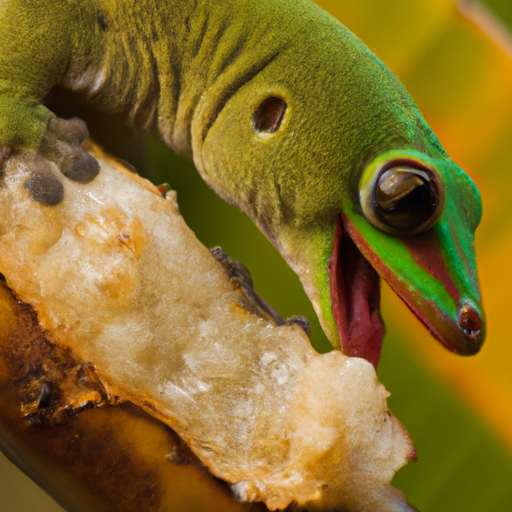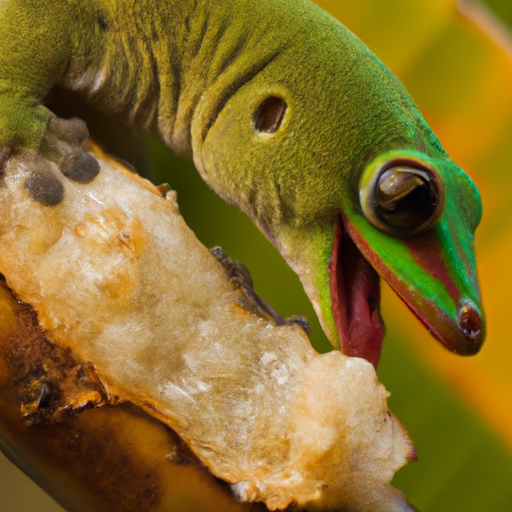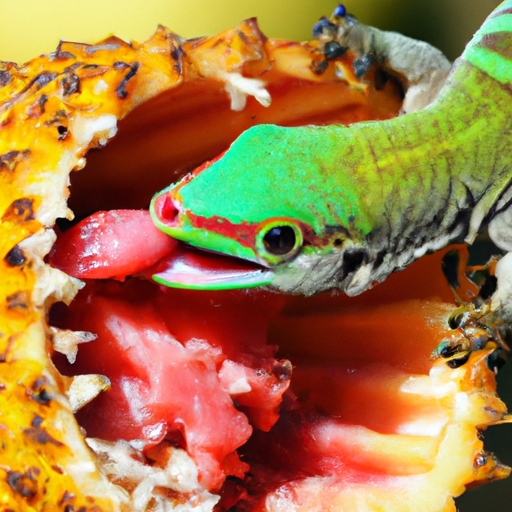
Geckos are fascinating creatures known for their ability to climb walls and ceilings. But did you know that their diet primarily consists of insects? This article explores the question: can geckos eat fruits and vegetables? While geckos are not typically herbivorous, there are certain situations where they may consume small amounts of fruits and vegetables. To better understand the dietary needs of geckos and whether incorporating these foods into their diet is beneficial, it is crucial to consider their natural habitat and nutritional requirements.
Can Geckos Eat Fruits and Vegetables?
Geckos are fascinating reptiles that can be found in various regions around the world. Known for their ability to climb walls and ceilings, these creatures have become popular pets for many reptile enthusiasts. As pet owners, it is essential to provide geckos with a balanced and nutritious diet to ensure their overall health and well-being. While geckos are primarily insectivores, there may be some instances where fruits and vegetables can be incorporated into their diet. In this article, we will explore whether geckos can eat fruits and vegetables and discuss the potential benefits and risks associated with their consumption.
The Natural Diet of Geckos
Before delving into the topic of whether geckos can consume fruits and vegetables, it is important to understand their natural diet in the wild. Most geckos are insectivores, meaning they primarily feed on a diet consisting of insects and small invertebrates. This diet is rich in essential nutrients, such as protein and fats, which are crucial for their growth, development, and maintenance of bodily functions. In the wild, geckos rely on their hunting instincts to catch prey, and their digestive systems are adapted to efficiently break down and absorb nutrients from insects.
Nutritional Requirements of Geckos
Geckos have specific nutritional requirements to meet their metabolic needs. They require an adequate intake of protein, fats, vitamins, and minerals for optimal health. Protein is essential for muscle growth and repair, while fats provide a source of energy and aid in the absorption of fat-soluble vitamins. Calcium and phosphorus are vital for maintaining strong bones and proper functioning of the nervous system. These nutrients are typically obtained from a diet consisting of insects and other small invertebrates.

Fruits and Vegetables: Potential Benefits
While geckos are primarily insectivores, there may be some potential benefits to incorporating small amounts of fruits and vegetables into their diet. Fruits and vegetables can provide additional vitamins and minerals that may complement their existing insect-based diet. These plant-based foods are rich in antioxidants, fiber, and various micronutrients, which can support overall health and boost immune function. Introducing a varied diet can also help prevent nutritional deficiencies that may arise from a monotonous insect diet.
Safe Fruits and Vegetables for Geckos
When considering offering fruits and vegetables to geckos, it is crucial to select options that are safe and suitable for their consumption. Not all fruits and vegetables are suitable for geckos, as some may be toxic or difficult to digest for them. It is important to avoid feeding geckos with fruits and vegetables that contain high levels of oxalates or plant toxins. These can have adverse effects on their health and lead to digestive issues or even poisoning. It is always best to consult with a reptile veterinarian or knowledgeable breeder to obtain a list of safe options or specific recommendations for your gecko species.

Preparing Fruits and Vegetables for Geckos
When offering fruits and vegetables to geckos, it is essential to prepare them in a way that ensures easy digestion and minimizes the risk of choking or other digestive issues. Geckos have small mouths and do not possess teeth to chew their food adequately. Therefore, it is recommended to finely chop or puree fruits and vegetables into small, manageable portions. This will help geckos consume the food more easily and effectively extract the desired nutrients from the plant matter.
Introducing Fruits and Vegetables Gradually
If you are considering introducing fruits and vegetables into your gecko’s diet, it is essential to do so gradually. Geckos may have specific dietary preferences or sensitivities, and sudden changes in their diet can cause digestive upset or refusal to eat. Begin by offering small amounts of fruits and vegetables alongside their regular insect-based diet. Observe their response and monitor for any adverse effects. If your gecko shows no interest or experiences digestive issues, it may be best to avoid incorporating fruits and vegetables into their diet.
Conclusion
While geckos are primarily insectivores, there are instances where fruits and vegetables can be safely incorporated into their diet. These plant-based foods may provide additional vitamins, minerals, and antioxidants that can support their overall health. However, it is crucial to select safe options and prepare them appropriately to ensure easy digestion and minimize potential risks. Each gecko species may have specific dietary needs, so consulting with a reptile veterinarian or knowledgeable breeder is recommended before introducing any new foods into your gecko’s diet. Remember, a balanced and varied diet is key to maintaining the health and well-being of your pet gecko.